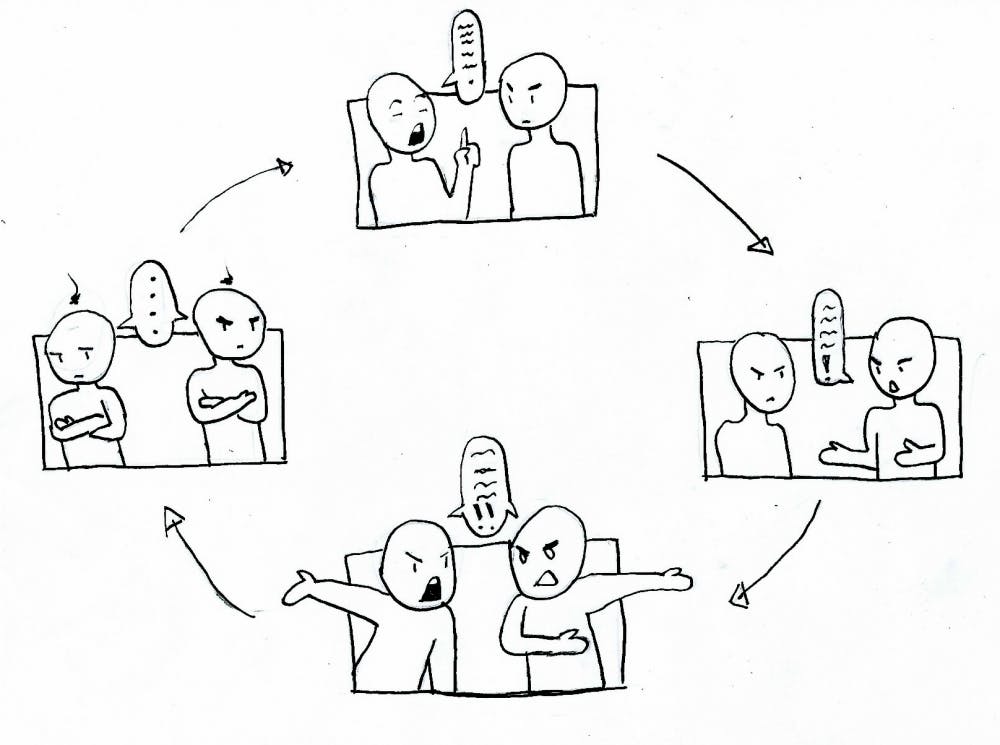Arguments on Facebook can be productive and invoke positive discussion if done properly.
It really goes without saying that our generation uses social media all the time. Rarely do I meet a person in my age group who does not engage with social media. Lately, during this past election season, political arguments spurred a lot over the Internet.
With that said, it is important to note that using vulgarity and being condescending in an argument does not lead to political engagement or proper discussion. It can even have a detrimental effect on the relationship of various political groups at ASU.
About a year ago, I began posting various political memes, articles, YouTube links and other material on my Facebook profile, which incited arguments with several people — some of whom I have never met before.
Initially, I was posting to change people’s minds about certain issues that I cared about. My political views have changed a lot over the past several years, and I wanted others to experience the same sort of change I did.
The way I was posting on Facebook, however, was rather inappropriate and immature. Those posts were not civic engagement, they were rants. I was being condescending to my political opponents, calling them names and insulting their political ideologies. My emotions got the best of me and I couldn’t control myself.
Angel Garcia, a senior at ASU studying history and economics, is close friend of mine who leans left and often disagrees with me on many issues.
“I am not sure if there was any particular Facebook rant that you had that I changed my mind on, but I did read them and I did engage with them,” Garcia said.
I was not alone in doing this. There were numerous others who began to argue and rant on their profiles as well.
There is one particular group that used to be a part of a certain political club on campus that shall remained unnamed. This page has been a horrible “war zone” since July 2016, where people come in and argue vehemently. Various members spend hours upon hours having arguments that lead to absolutely nothing. The record set on the page was 250 comments.
“Nothing substantive comes from arguing on Facebook at all,” Tristan Wulffson, an ASU junior studying political science, said.
When done properly, there are very positive things that can arise from discourse on Facebook.
“I started arguing on Facebook ... to have people to be able to discuss topics with and debate. It makes people more intelligent,” Lucas Freeland, an ASU junior studying economics, said.
Freeland engages in positive discussion as a way to gain insight, which is how it should be done. He not only wants to make himself smarter, but others as well.
“In order to have successful discourse both parties have to both be willing to accept that they could be wrong and they would also have to be willing to discuss the other side and if you don’t have those two components, you won’t have a successful discourse,” Garcia said.
In-person dialogues can be more productive and offer more insight as to what your political opponent thinks.
"In 140 characters on Twitter or only on one Facebook post, you don’t really necessarily have quite an opportunity to have a full length conversation and understanding as you would in real life. (Posting politics on Facebook) is good for sparking a dialogue, but I think you need to have further conversation, further interaction in person,” Mitchell Johnston, political science and history major as well as community liaison for ASU Young Democrats, said.
If you want to change other people's political views, there are numerous other ways that are much more effective. For example, you can lead a political group on campus, be a member of a political group on campus, start a blog, start a YouTube channel, become an opinion columnist at the State Press and whole variety of things.
Having @JulieBorowski call you out for your anti-Facebook arguments stance > winning Facebook arguments#MakeLibertyWin
— Cliff Maloney Jr. (@LibertyCliff) March 4, 2017
Positive discussion is conducive to a healthy political climate, but arguing and being condescending in online discussions affects relationships all over campus and is frankly a waste of time.
Reach the reporter at vpappuse@asu.edu or follow @vpappuse on Twitter.
Editor’s note: The opinions presented in this column are the author’s and do not imply any endorsement from The State Press or its editors.
Want to join the conversation? Send an email to opiniondesk.statepress@gmail.com. Keep letters under 500 words and be sure to include your university affiliation. Anonymity will not be granted.
Like The State Press on Facebook and follow @statepress on Twitter.




